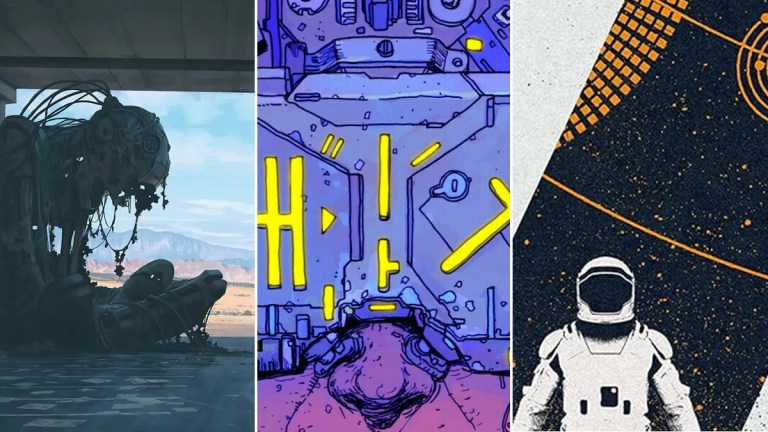The fusion of artificial intelligence (AI) and science fiction (sci-fi) is transforming storytelling in ways previously unimaginable. For decades, sci-fi has explored the potential of advanced technologies, including AI itself, but now we stand on the brink of a new era—where AI is not only a subject within these stories but also a co-creator. This shift brings exciting possibilities and complex challenges for writers, readers, and creators alike.
### 1. **AI as a Creative Tool**
AI is rapidly becoming an invaluable tool for writers and creators of sci-fi. Through advanced machine learning models, AI can now generate compelling narratives, create worlds, and even craft dialogue. By analyzing massive datasets of existing stories, AI tools can suggest plot points, help writers brainstorm, and even simulate how a character might evolve throughout a series.
Tools like OpenAI’s GPT models are already being used by sci-fi writers to enhance their creative process. These systems can help generate ideas for alien species, futuristic technologies, or philosophical dilemmas—hallmarks of the genre—freeing up writers to focus on deeper character development and world-building. AI becomes less of a replacement for the human touch and more of a creative partner.
### 2. **AI-Driven World-Building**
One of the most labor-intensive aspects of sci-fi is the intricate world-building that defines the genre. AI can assist here by rapidly generating fictional worlds, cultures, ecosystems, and technologies. AI-generated environments could be fine-tuned to fit a story’s tone and themes, offering endless possibilities for unique settings.
AI doesn’t just provide static details but can simulate how fictional societies might evolve under different technological or environmental constraints. Writers can create more dynamic and realistic worlds by using AI to simulate possible outcomes, from the rise of mega-cities to the ethical dilemmas posed by biotech or AI governance.
### 3. **Character and Dialogue Creation**
Creating authentic characters and believable dialogue in a futuristic setting is a challenge even for seasoned writers. AI can be programmed to assist in character creation by analyzing archetypes across sci-fi literature and films and generating traits or backgrounds that fit a particular universe. Similarly, AI can craft dialogue that suits a particular character, species, or futuristic culture, helping writers craft convincing interactions that align with the tone of their narrative.
For example, in stories where the protagonist interacts with AI-driven characters, AI-generated dialogue can mirror how real AI systems might communicate in the future, adding a layer of authenticity and immersion to the storytelling experience.
### 4. **Collaborative Storytelling**
Perhaps the most exciting potential lies in AI-facilitated collaborative storytelling. Imagine sci-fi universes co-created by humans and AI, where authors can input broad plot ideas, and the AI fills in the details, creating a symbiotic relationship. Writers could focus on guiding the overarching narrative while AI helps weave intricate subplots, generating alternate storylines or diverse character perspectives that enrich the universe.
This model of collaboration is especially promising for expansive, shared worlds, like the Marvel or Star Wars universes, where consistency and depth across numerous narratives are essential. AI could maintain coherence across multiple storylines, ensuring continuity while allowing for creative freedom.
### 5. **Ethical Considerations and Challenges**
Despite the potential, there are also significant challenges and ethical considerations in using AI in sci-fi creation. The first is the risk of losing the human touch—AI may be able to mimic creativity, but it lacks the emotional depth and nuance that human writers bring to their work. The fear is that over-reliance on AI could lead to formulaic, emotionless storytelling.
Moreover, AI systems are trained on vast datasets, often without consideration for originality or intellectual property. Sci-fi writers must be cautious of how much they rely on AI-generated content, as it could unintentionally draw too heavily from existing works or reinforce harmful stereotypes that might be present in training data.
Finally, there is the question of authorship. If an AI significantly contributes to a story, who owns the intellectual property? How do we give credit to AI in a way that respects both human authors and the machines that aid them?
### 6. **The Future of Sci-Fi and AI**
As AI continues to evolve, it will likely play a more significant role in the creation of sci-fi. We may see the rise of AI-generated novels, movies, and games that blur the lines between human and machine creativity. Yet, at its core, sci-fi has always been about human experiences—our hopes, fears, and dreams for the future. While AI can enhance the storytelling process, it is the human imagination that will continue to drive the genre forward.
The intersection of AI and sci-fi is an exciting frontier—one that promises to reshape not just how we tell stories, but the kinds of stories we tell. In the hands of creative minds, AI can unlock new dimensions of the genre, making the future of sci-fi as limitless as the universe it explores.
---
In conclusion, AI’s involvement in sci-fi creation offers unparalleled opportunities to expand the scope and depth of the genre. However, the heart of sci-fi will always be its reflection on the human condition. As long as writers use AI as a tool rather than a replacement, the genre will continue to thrive, exploring both the marvels and the moral complexities of technological advancement.

